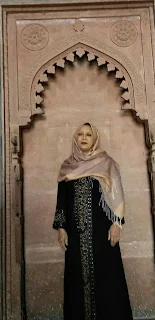Each of us has a Jesus inside.
If a pain and yearning shows up inside us,
the Jesus of our soul is born.
If there is no pain, no yearning,
the Jesus of our soul will return to its
origin from
the same secret passageway he came from…
If there is no pain, no yearning,
we will remain deprived
not benefiting from that Jesus of the
soul.
-Hazrat Maulana Jalaluddin Rumi (ra)
in Mathnawi---Translated by Omid Safi, in Radical
Love: Teachings from the Islamic Mystical Tradition (Yale, 2018).
A true believer becomes like ‘Maryam’
and is infused with the Holy Spirit
In Surah Al Tahrim, we read: “And Allah next compares the believers to Maryam, the daughter of Imran, she took care to guard her chastity, so we breathed into him (the believer who is exemplified here) Our inspiration while she declared her faith in the revelations of her Lord and His scriptures and she became of the devoted ones to prayers and obedient to Him”- (Surah Al Tahrim, HQ, 66: 13)
In this Qur’anic verse, Maryam is set as
an example for righteous servants of Allah. Like Maryam, true
believers- though they are not Prophets of Allah- can also
be bestowed with Divine revelations. Such a servant is like Maryam
and then Allah will infuse His Ruh in him and he will become
the like of Jesus, a servant of God and recipient of His
Revelations. According to Hazrat Khalifatul Massih Awwal Allama
Hakkim Nuruddin (ra), “the verse clearly informs us that in the Ummah of
the Holy Prophet (pbuh), there will be people- both men and women- like Maryam,
who will guard their chastity, be devoted to prayers, declare faith in the
Scripture and because of being an obedient servant of Allah
will receive the blessings of Divine Revelations. This promise has
been given in the very first chapter of al-Fatihah in the
words, “Show
us the path of those whom you bestowed your Mercy”.




